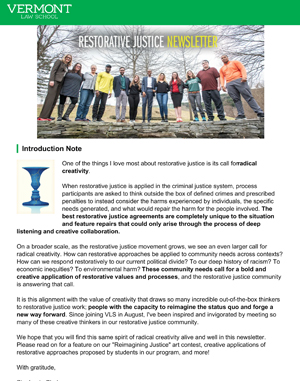About This Class
SPECIAL SCHEDULING: This class will meet three times a week (M, W, Th) until [Spring Break][March 11-19],then not again until the last two weeks of classes, when students will present their final papers as works-in-progress. Final papers will be due during the exam period, date to be determined.
The classic distinction between Common Law and Civil Law has grown less significant in the 21st century as national legal systems influence each other across borders and globally. Both traditions have given rise to many national legal systems around the world, each of which has evolved into a unique blend of legislation, codification, constitutional and judicially influenced law. The legacy of France's Code Civil continues to evolve in dozens of countries worldwide, including many in South America. England and the Commonwealth Countries – Australia, Canada, New Zealand have each developed into distinctive forms of common law. The Nordic countries have their own legal tradition. What do these different legal traditions and diverse national legal systems have to teach each other, and what can a U.S. lawyer learn for his or her practice, whether stateside or abroad?
We will begin with the purposes and methods of comparative law, then focus primarily on the Western Legal Tradition to study the following elements of legal systems: sources of law; the relationship between codified law and case law; procedure; legal education; and constitutional design, including questions of federalism, judicial review and balance of powers.
We will begin with the purposes and methods of comparative law, then focus primarily on the Western Legal Tradition to study the following elements of legal systems: sources of law; the relationship between codified law and case law; procedure; legal education; and constitutional design, including questions of federalism, judicial review and balance of powers.
A portion of the course will be devoted to comparing the protection of indigenous peoples and their special relationship to the environment in countries such as Argentina, Australia, Canada, New Zealand and select countries in Scandinavia and the Pacific Islands (China and/or Russia may also be covered depending on class enrollment and student interest). For their final paper students are encouraged to choose a topic relevant to indigenous peoples or environmental protection.
Students will be asked to write: 1) a short, preliminary paper using the comparative method; and 2) a longer paper, also using the comparative method, on one aspect of legal system design that we have covered in class. This course is particularly recommended for students participating in any of the Vermont Law School study abroad programs.
The course satisfies a distributional course requirement for the Certificate Program in International and Comparative Law and may be used to satisfy the Advanced Writing Requirement.
Satisfies perspective requirement.
Students will be asked to write: 1) a short, preliminary paper using the comparative method; and 2) a longer paper, also using the comparative method, on one aspect of legal system design that we have covered in class. This course is particularly recommended for students participating in any of the Vermont Law School study abroad programs.
The course satisfies a distributional course requirement for the Certificate Program in International and Comparative Law and may be used to satisfy the Advanced Writing Requirement.
Satisfies perspective requirement.



















